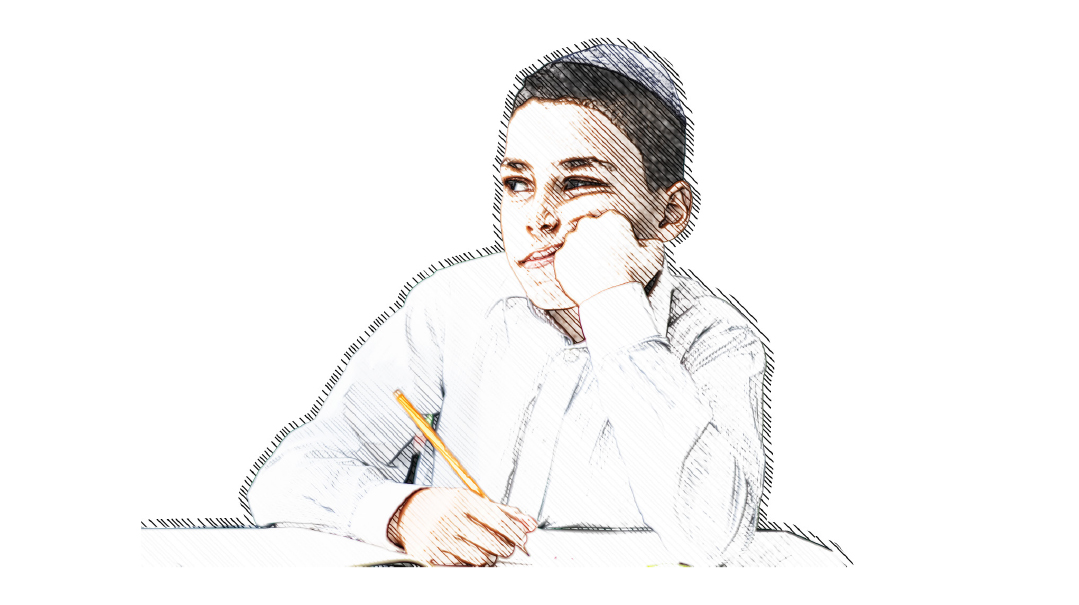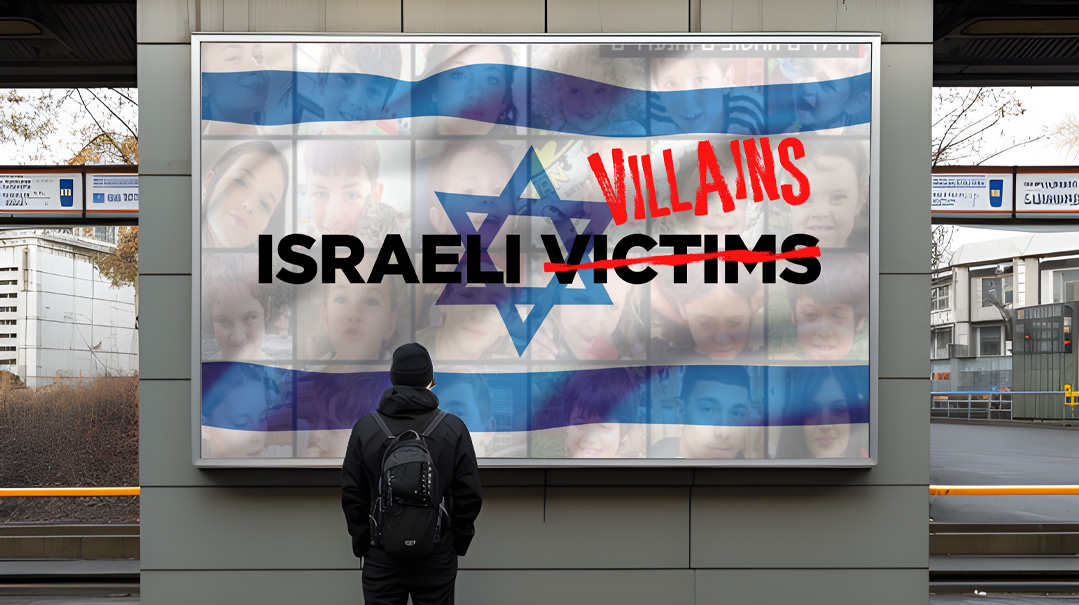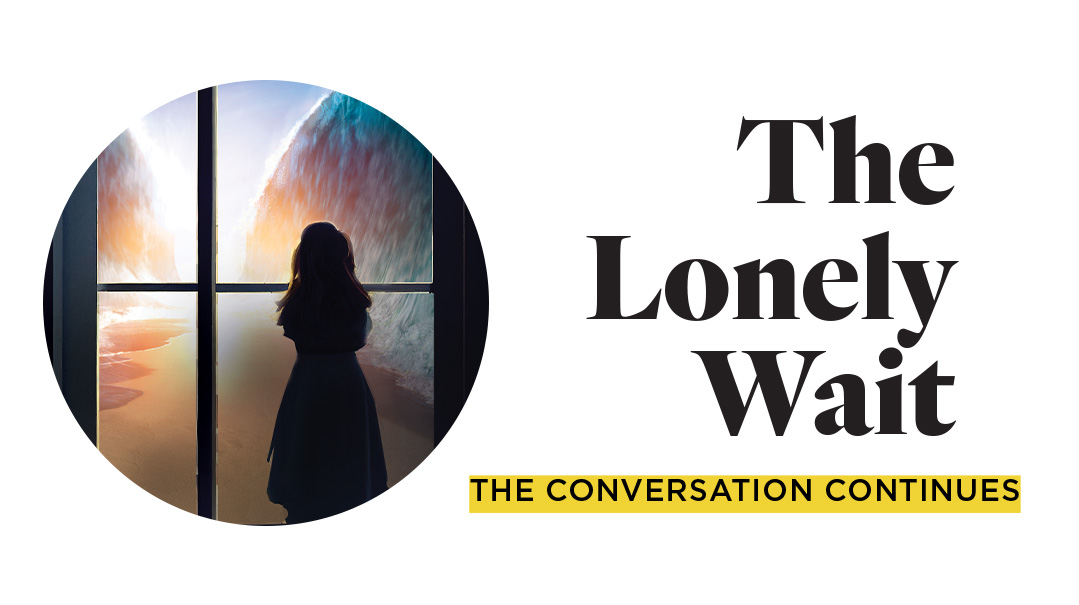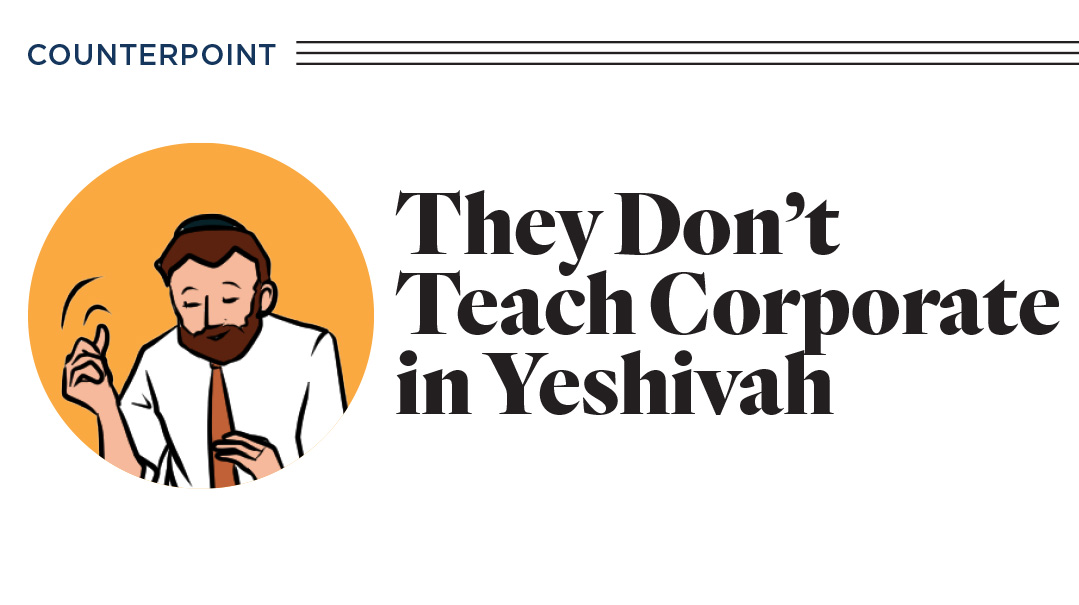Healing from the Inside: the Conversation Continues, Part 2

Allison Josephs’s piece, “Healing from Within,” about the correlation between OTD kids and emotional neglect, is still drawing significant and impassioned feedback
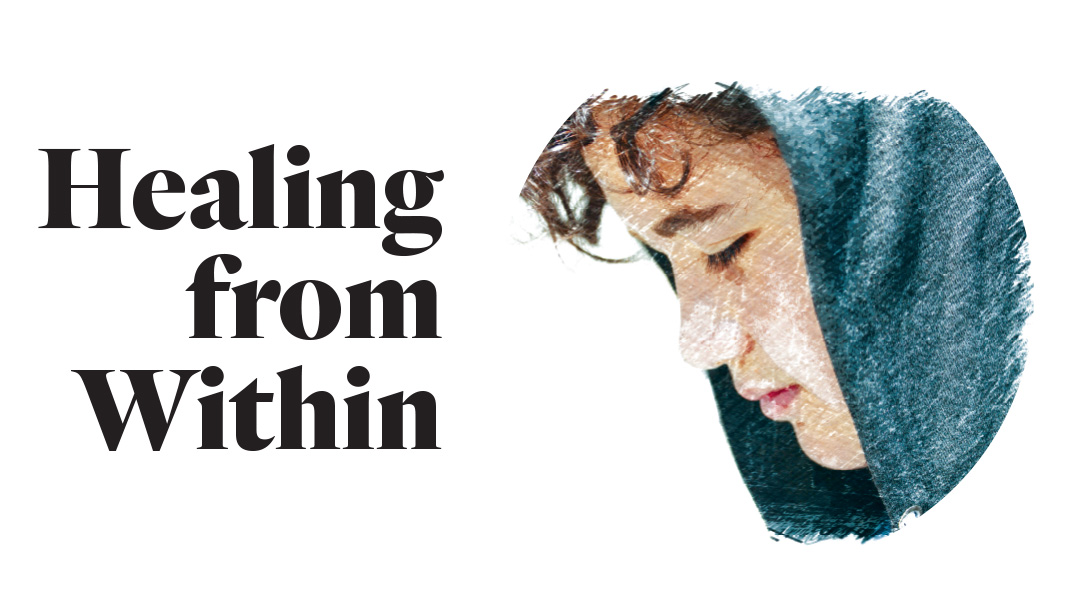
Why We are Leaving // A frum but struggling mother of five
I love reading articles about our OTD children and teens at risk. It is so fascinating reading about myself. I would like to address a few points from within.
One of the main reasons we humans stay so dependent on our parents for many years is that we should learn from our relationship with them how to have a relationship with Hashem.
It is often brought down that Hashem is like our father. Now for people like me who have never experienced parents as loving — if anything, just the opposite — we are predisposed to view Hashem as chas mil’hazkir very unforgiving, out to punish us for everything. Moreover, our perception is that He doesn’t really care about us anyway since He gave us such a difficult life, so why try to please Him at all?
My guess is that most of us don’t really have an issue when it comes to faith and belief in Hashem; we just don’t really know who the real Hashem is at all. That could definitely be healed by a healthy attachment.
Another point rarely discussed in our community is the destructive power of abuse and unwanted touch. It’s not so much the abuse that turns us off, but rather the fact that some rabbis and mentors have refused to acknowledge or openly disbelieved us when we do speak up. Some even tell us to be quiet.
The pain of abuse is thus multiplied by our communities’ lack of support for the victims. Just as in an incident of bullying, where the bystander who remains silent is part of the aggression, so too when Klal Yisrael remains quiet about the severe issue of abuse, they all become part of the problem. Why should we want to be part of a community that encourages our blood being shed?
Now, about the terrible phenomena of adult children cutting off from parents. Again, very often molestation is at the root of the reason we cut off ties. We cannot go around telling everyone why we cut off ties, and our parents may seem perfectly fine on the outside. Our only way to stay safe is unfortunately to completely cut off from our families. We all wish there would be an easier way.
Again, if our communities would start speaking up and enforce reporting the abusers and having them jailed, many of us would be able to safely reconnect with our family.
Let’s stop pretending that things are oh-so-perfect. Let’s start to admit when we have a major problem on our hands and let’s all get together to stop the terrible bleeding in Klal Yisrael. While providing first aid to those already injured is definitely commendable, it would be extremely helpful to get those that are shooting our youth off the streets and in prison where they belong.
Skip the Guilt, But not the Work // A married sister of several OTD teens
I read with interest the letters in response to Allison Joseph’s article about the correlation between kids going OTD and emotional neglect. A quote I read once in Mishpacha came to mind: “When you’ve arrived at a paradox, you’ve arrived at the Truth.”
Yes, it is true that many OTD children grew up without their emotional needs met. Yes, it is true that it is a parent’s responsibility to meet a child’s emotional needs, even if that child is more sensitive and therefore more emotionally needy.
But yes, it is also true that most parents try their very best with the tools they had at that time and things beyond anyone’s control complicated matters, and it is also true that guilt and blame only makes things worse for everyone involved, including the child.
It is true that no one should blame or judge — perhaps your own kids do not have such sensitive natures, or perhaps you had more support raising your kids and really have only Hashem to thank that your kids came out normal, while your neighbor with an OTD child was trying to understand her challenging child while being brutally misunderstood herself.
At the same time, it is true that parents need to look beyond what everyone thinks of them, which is causing the crippling guilt, and instead think about how they can help their child in the here and now.
Begin by understanding yourself — you truly did your best — and the compassion and understanding you have toward yourself will naturally cause you to have compassion and understanding toward your struggling child. Take classes and courses on how to connect strongly with more emotional children and how to recharge your own batteries so you have the strength to do it. Read parenting articles and tips minus the guilt, because the goal is not perfection or impressing everyone with how wonderful your kids are. The goal is to enjoy and cherish your children and do hishtadlus toward helping them actualize themselves.
Let’s Empower Mothers // Rebecca Masinter
I appreciated Allison Joseph’s article (Issue 930) emphasizing how insecure childhood attachment has been a common denominator among many Jews who leave observance, but I believe it requires additional attention from the community at large.
Parenting is a job that requires huge investments of time, energy, and effort, and many mothers are stretched very thinly without enough knowledge or communal support to help them develop the empowered mothering skills and wisdom needed today more than ever.
Whereas for much of our history, we could assume that most mothers knew how to parent intuitively and that most children born would be receptive to standard parenting, motherhood today requires exceptional wisdom, courage, fortitude, and significant support from our community — more than we currently provide.
To illustrate, a friend who works in an early childhood therapy center catering to frum families shared with me that 85 percent of the children her facility treats do not have inherent challenges that require therapy, but rather are simply not receiving what they need at home. This observation has been echoed by other professionals I have spoken to — many therapists are taking on roles that mothers used to fill.
This is not an indictment of any individual mother; every mother does her best, but the world has changed, and despite our best intentions we are quickly losing the skills and knowledge that until recently were intuitive for many parents. I believe that our schools, shuls, and communities can do a lot to help mothers become better prepared, more knowledgeable, focused, and inspired parents.
What can we do to change this reality? I suggest we begin by emphasizing the importance and impact of motherhood (from a hashkafic and research-based perspective) even before marriage, teach the fundamentals of healthy child development and principles of parental chinuch, and provide opportunities for mothers (both those who work and those who stay home) to connect with and learn from each other.
Girls’ high schools can evaluate their curricula to determine how they can better prepare graduates for motherhood. Teaching practical halachah classes that cover childcare on Shabbos, teaching child-development psychology classes, and emphasizing the importance of motherhood as a theme while teaching Chumash, Navi, and hashkafah classes are a few ways to begin.
Many schools have career days highlighting the many ways frum women can earn a parnassah. Why not also invite a stay-at-home mother to address the girls? Surely, a full-time mother has wisdom to impart that is applicable to every student, no matter what her future plans are. Along with sharing her experience, she will communicate what it looks like for a stay-at-home mother to invest her intellect, problem solving skills, organizational skills, and Torah knowledge to raise each of her children in the Torah way of life. (Although many students will, by necessity or choice, end up devoting significant energy outside the home, they too need to know the importance of motherhood so they can learn how to prioritize their energy into building strong relationships with their children in the time they will have available.)
When we discuss parnassah and shidduchim with our young adults, we can make sure we are helping them understand their options and decisions from the perspective of their future children and how today’s decisions will impact their future families.
Once a woman has children, we can do more to support and validate her as a mother. Often, mothers who stay home with their young children feel invisible to the broader community. Shuls can run weekday morning Mommy-and-Me groups, giving mothers a chance to meet and connect with each other, while learning together. Additionally, on Shabbos shuls can set aside rooms where mothers can sit comfortably with each other and their young children, while waiting to escort their husbands and older children home. Perhaps they can use their time together to learn and strengthen each other as mothers.
Shuls and community organizations can also offer more events for parents and children together rather than the drop-off style which has become predominant. Kol Hane’arim (or Avos U’Banim) learning programs is a good start, but we can do so much more. Before Covid, many mothers got together for park dates, library story-times, and similar activities, but these opportunities are diminishing. Let’s start our own activities that strengthen family relationships.
Mothers are not only physically raising the next links in the chain of the Jewish people, but rather are uniquely suited to grow each generation’s spiritual link in the chain of our mesorah. The importance of their role cannot be overstated, but they cannot do it alone. I believe that all frum mothers want to parent well and give their children everything they need. However, today we are fighting against a culture that undermines healthy parenting and child development in many ways, and we have not yet adequately addressed this reality.
If we as a community make an effort to focus on educating, empowering and strengthening mothers, I believe we can make a difference.
What “Good Enough” Looks Like // Atara Weinstein, MSW
As a therapist with a specialty in treating complex trauma, I read the responses to Allison Josephs’s piece with interest. Specifically, the letters by Dina Friedman and the final anonymous writer evoked a powerful reaction for me.
As a psychotherapist and a human being, I truly and fully believe the following:
Virtually all of us, all the time, are doing the absolute best we can with the tools we have.
We all can, and must, work toward making the best we can better, in the ways that are possible for us.
Hashem has planned every person’s journey in the best way for them, imperfect and painful as it may be, for the ultimate good of that person’s development and neshamah. Over the course of that journey, some things will be in our control, and some things will not.
I also believe that information, psychological and otherwise, is made available to us by G-dly timing. When the world needed to discover electricity — which had always existed — mankind discovered electricity. The same goes for germ theory, genetic knowledge, and psychological theories of development.
Attachment theory is one centrally important lens through which to understand human development. I don’t at all believe it is “way overused.” I utilize it constantly, personally and professionally.
It is not, however, the only theory: All theories, ideas, and perspectives need context and balance. Temperament, biology, social and educational environment, free will, and more, all go into how we become who we become. No one article, or series of articles, can address all those aspects of development, and articles geared toward parents naturally focus on those aspects most relevant to parenting.
The final letter writer wrote that the deluge of parenting articles lead to the belief that that “the future wholeness of (our) children depends entirely on a rarefied level of emotional expertise that is beyond their capacity to achieve if they weren’t blessed with parents who themselves were fortunate enough to have it.” This is true… and it isn’t.
None of us is completely whole. We all live with holes, hurts, empty spaces, and deep pain and longing — some of us more, and some less. As long as we are in galus, this is part of who we are, as we strive to live lives of joy and meaning even with the parts that lack and ache.
At the same time, my own heart ached reading this. Parents are human beings, and we are allowed and meant to be. No child’s entire future, and no parent-child relationship, rises or falls on one interaction. Not even two. Or three.
Relationship security and comfort are born out of repeated interactions of love, attunement, delight, protection, safety… and vice versa. We do our best to be good-enough parents, with awareness of the awesome responsibility raising a child places upon us.
More information can help us do better, and can point out the areas where a bit of effort makes a big difference. The emphasis here is on good enough — which, if you want some statistics, means getting it “right” about 30 percent of the time. That means being appropriately attuned, caring, loving, and present — metaphorically hitting the nail on the head.
The other 70 percent? That’s when we do our best to try again, take responsibility, make our best guess, apologize if we need to, and reconnect with the child we inadvertently “missed” with. This is what goes into a strong, secure attachment: being present and attuned enough of the time to create security, and doing our human and imperfect best the rest of the time.
Are some children more highly sensitive and needy? Yes. Does this predispose them to future emotional difficulties? Sadly, also yes. Does environment, including the attachment relationship, have a major impact on this? Based on everything we know at this time — yes. Will every parent be able to meet the enormous range of emotional needs of every child? Of course not.
In Judaism, we are constantly faced with an ideal goal of perfection, and the real-life knowledge and acceptance that we will never be perfect. This dialectic is exactly the way things were meant to be. We aren’t meant to give up because we don’t keep all mitzvos perfectly, and probably never will. We keep doing the best we can, and keep trying to make our best better.
One more note: I have had the privilege of working with many parents. Many of them were loving, caring, devoted and involved. Some hurt their children terribly — almost always without meaning to, simply out of their own hurt, limitations, or lack of understanding. Some were simply not able to give this particular child what his unique character needed at the time.
The power of a parent being able to really listen to a child and say without defensiveness, “I’m sorry I hurt you. I never meant to. You are precious and I love you,” is immeasurable. No groveling, no demeaning, no defensiveness. Just hearing, understanding, and ultimately moving on.
It’s too easy, too simplistic, to fall into the trap of black-and-white thinking or assigning and denying blame. It’s hard to look at things complexly, and make space for parts we wish weren’t there and things we wish we could do differently — myself very much included.
I hope we can continue to learn and not turn to despair, but rather to a sense of mission and awareness of the gifts we can give our children and how much we can do. Then, we leave the rest up to Hashem — and remember that we are all His beloved children.
(Originally featured in Mishpacha, Issue 933)
Oops! We could not locate your form.

